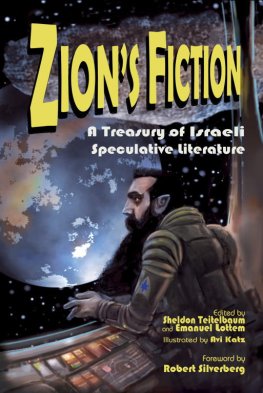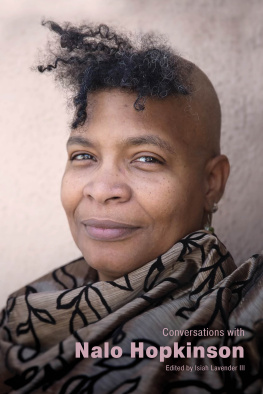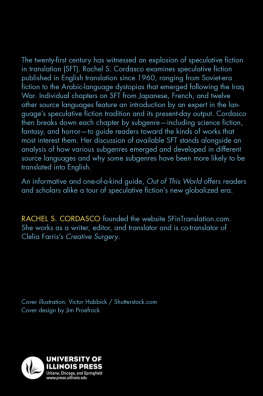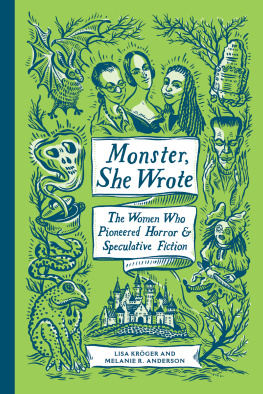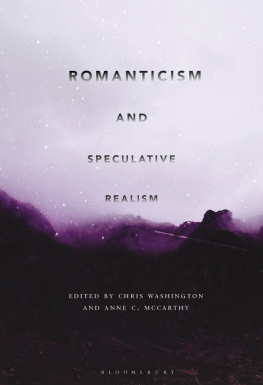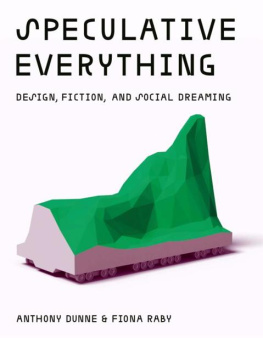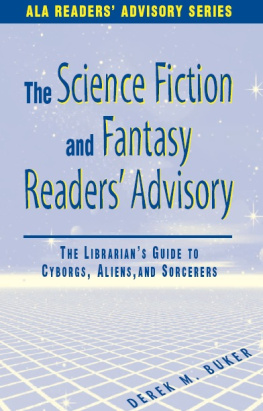Cyborgs, Sexuality, and the Undead
CYBORGS, SEXUALITY, AND THE UNDEAD
The Body in Mexican and Brazilian Speculative Fiction
M. ELIZABETH GINWAY
VANDERBILT UNIVERSITY PRESS
Nashville, Tennessee
2020 by Vanderbilt University Press
Nashville, Tennessee 37235
All rights reserved
First printing 2020
Library of Congress Cataloging-in-Publication Data
Names: Ginway, M. Elizabeth, author.
Title: Cyborgs, sexuality, and the undead : the body in Mexican and Brazilian speculative fiction / M. Elizabeth Ginway.
Description: Nashville : Vanderbilt University Press, [2020] | Includes bibliographical references and index.
Identifiers: LCCN 2020027459 (print) | LCCN 2020027460 (ebook) | ISBN 9780826501172 (paperback ; acid-free paper) | ISBN 9780826501189 (hardcover ; acid-free paper) | ISBN 9780826501196 (epub) | ISBN 9780826501202 (pdf)
Subjects: LCSH: Speculative fiction, MexicanHistory and criticism. | Speculative fiction, BrazilianHistory and criticism. | Human body in literature. | Monsters in literature. | Gender identity in literature. | Comparative literatureBrazilian and Mexican. | Comparative literatureMexican and Brazilian.
Classification: LCC PQ7207.S68 G56 2020 (print) | LCC PQ7207.S68 (ebook) | DDC 863/.087609972dc23
LC record available at https://lccn.loc.gov/2020027459
LC ebook record available at https://lccn.loc.gov/2020027460
In memory of my sister, Jennifer Whitlock Ginway Mistrano (19672014)
CONTENTS
ACKNOWLEDGMENTS
Writing a book at age sixty is quite different from writing one at age forty, mostly because of the shift in perspective brought about by time and its effects on mind, body, and spirit. I would like to give thanks to those who have helped me along the way. I began to venture down the road of Spanish American science fiction thanks to Andrea L. Bell and Yolanda Molina Gaviln, whose 2003 Cosmos Latinos, an anthology of Latin American and Spanish texts in English, inspired me to teach my first class on Latin American SF in English. I ventured further, attending two key Spanish American science fiction symposia during 2010 and 2011. The first was in Santiago, Chile, where l heard talks by J. Andrew Brown, Edmundo Paz Soldn, Alberto Fuguet, Jorge Baradit, and Mike Wilson. The second was held in Tijuana, Mexico, where I had the privilege of meeting Gabriel Trujillo Muoz and speaking at length with Pepe Rojo, Deyanira Torres, Bernardo Fernndez (Bef), Horacio Porcayo, Bruce Sterling, Chris Brown, and Miguel ngel Fernndez Delgado (MAF). Later, MAFwho was extraordinarily generous with his time and knowledgearranged for me to meet with SF fans in Mexico City, and Bef invited me to a gathering of several writers, including Jos Luis Zrate, Karen Chacek, Edgar Omar Avils, Ricardo Guzmn Wolffer, J. M. Rodolfo, and Alberto Chimal. Since 2010, as part of the UF study abroad program, I have traveled to Brazil five times, enabling me to maintain my contacts with science fiction writers Gerson Lodi-Ribeiro and Roberto de Sousa Causo. I also wish to recognize the work of Marcello Simo Branco and Csar Silva and their publication Anurio brasileiro de literatura fantstica, which also allowed me to keep a finger on the pulse of Brazilian science fiction. I would also like to thank Alfredo Suppia for inviting me to UNICAMP in 2016 and for being a supportive colleague during his Fulbright here at the University of Florida 20192020. During this year of pandemic, I extend thanks to Brazilian conference organizers Ana Rsche and Naiara Arajo for inviting me to speak at their virtual events, where I met Bruno Anselmi Matangrano and Alexander Meireles da Silva, albeit virtually.
Closer to home, many colleagues and communities have supported my work, beginning with science fiction scholars Rachel Haywood Ferreira and J. Andrew Brown. Wider communities include frequent attendees of the International Conference on the Fantastic and the Arts, including Dale Knickerbocker, Juan Carlos Toledano, Suparno Banerjee, Pawel Frelik, and Amy Ransom, as well as the editors of Science Fiction StudiesVeronica Hollinger, Joan Gordon, and Art Evans. I also wish to thank Extrapolation editor and organizer of the Eaton Conference Sherryl Vint for her support. At the University of Florida, Jennifer Rea and Terry Harpold have been especially supportive of international SF events. I thank Emily Hind, my colleague in Spanish and Portuguese Studies, for putting me into contact with Carmen Boullosa, Karen Chacek, and Cristina de la Garza. I also wish to thank Emanuelle Oliveira, David Dalton, Giovanna Rivero, James Krause, and Christopher Lewis for their interest in science fiction and their collaborations, both past and future.
I am grateful to the anonymous readers and the editors of Vanderbilt University Press for their suggestions and dedication to improving the manuscript and getting it into readable form. I also recognize the University of Florida, whose sabbatical program, together with the College of Liberal Arts and Sciences Scholarship Enhancement grants, offered release time and financial support. I also am grateful for the support of my chair, Gillian Lord. I also acknowledge, with thanks, the subvention grant I received from the University of Florida College of Liberal Arts and Sciences and Center for the Humanities and the Public Sphere (Rothman Endowment). I thank my aunt Jane Long and her daughter Marti as well as my son Matt McAllen for their support and curiosity about this book. Finally, I am especially thankful for the unwavering support and patience of my husband, David Pharies, who saw me through the ups and downs of this lengthy process, reading many drafts and helping me see the project through to the end.
Portions of appears in Eating the Past: Proto-Zombies in Brazilian Fiction 19001955, in The Transatlantic Unidead: Zombies in Hispanic and Luso-Brazilian Literatures and Cultures, ed. David Dalton and Sara Anne Potter, special issue, Alambique: Revista acadmica de ciencia ficcin y fantasa 6, no. 1 (2018): Article 7. Thanks to the editors of the journals for permission to reprint the portions of the articles cited above.
INTRODUCTION
Rereading the Body in the Speculative Fiction of Mexico and Brazil
This study builds on my 2004 monograph Brazilian Science Fiction: Cultural Myths and Nationhood in the Land of the Future. Specifically, it focuses on a single themethe bodyrather than on a set of icons or subgenres of science fiction. It extends the generic perspective beyond science fiction to the more general category of speculative fiction, which includes fantasy and horror, and it broadens the literary base to include works originating in Mexico as well as Brazil.
The Body in Mexico and Brazil
While the emphasis on science in the Anglo-American science fiction tradition often accentuates the generalized Western binary between mind and body, Latin American science fiction often appears to find a more nuanced middle ground, where cultural traditions resist the idea of a mind without a body. This explains why the body, especially in its ambiguous state, is the ideal locus for the study of speculative fiction in Mexico and Brazil. The cyborg exists as an amalgam of the cybernetic or mechanical and the organic or biological, relating to the social body in terms of class and race. Nontraditional sexualities represent a state between or beyond the genders, thus serving as an exemplary vehicle for examining gender and sexuality in the broadest sense. Zombies and vampires are the ultimate expression of an intermediary state, because as the living dead and the undead they embody the paradox of a present haunted by an embodied past.


